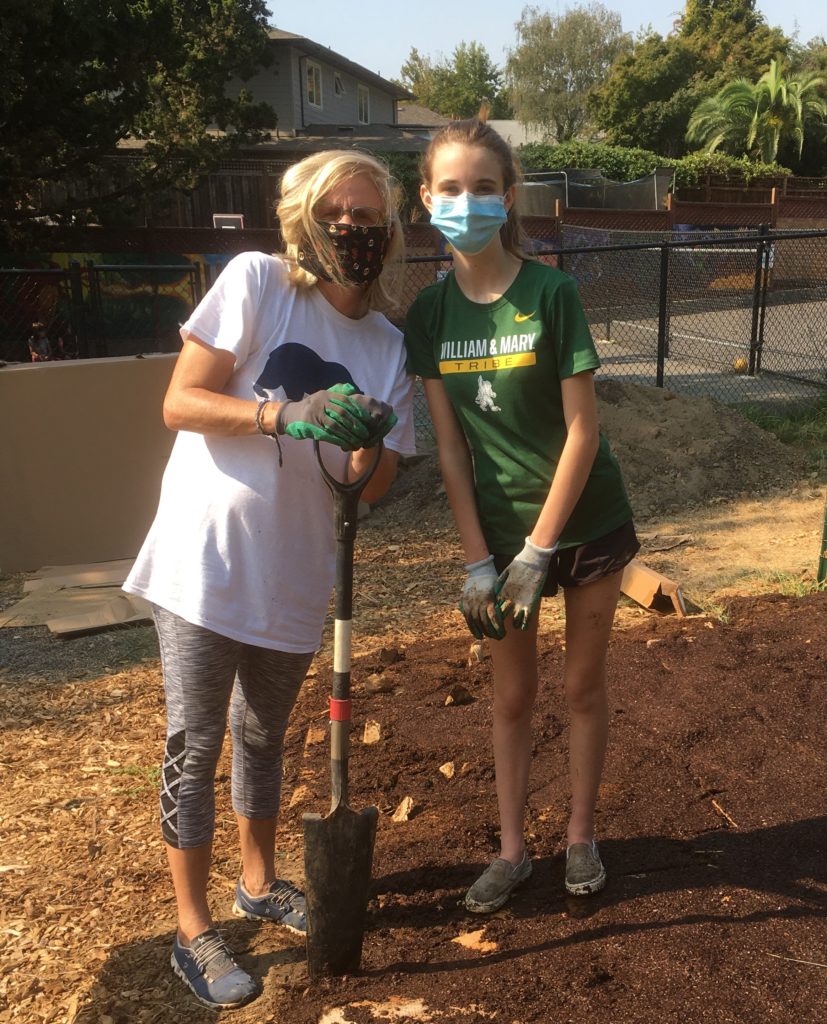Written by Casey Wu, Grant Writing and Development Intern
Community gardens are increasingly becoming a part of the urban landscape in which we live, work, and play in. These gardens, often built on underutilized land, have a number of positive health benefits, including but not limited to: improved access to food and better nutrition, increased physical activity, improved mental health, and improved safety and security in local communities. Representing a universal public good, community gardens provide a central space for residents to gather and contribute to the overall health of their communities. Particularly for young children, participation in community based gardening can help with physical, cognitive, and social development. In turn, this leads to a reduced risk of childhood obesity and better long-term health outcomes—leading to a net-benefit for the entire community at large.
Studies have shown that a sustainable community gardening program can reduce food insecurity, improve dietary intake, and strengthen family relationships. Considering that “more than 10% of US households experience food insecurity in any given year,” a community garden can significantly lessen and alleviate some of the stresses related to issues surrounding food scarcity. In one study conducted by Carney et al., where researchers used popular education techniques to support and educate Hispanic farmworker families in planting and maintaining organic gardens, results showed that community gardens led to a “nearly four-fold increase in vegetable intake among adults and a three-fold increase among children.” Additionally, many families involved in the study found that they felt a particular sense of satisfaction in knowing that their gardens allowed them to pass down long-standing family traditions while simultaneously reducing the amount of money spent on food. Moreover, out of the 42 families involved in the study, 31% had cited food security as a major concern, with this number dropping to 3% after the study had concluded.
The benefits of community gardening, while having a positive impact at the family level, also filter down to the children within individual households. A survey conducted by Waliczek et al. on the benefits of children gardening found that “adults gardening with children reported benefits to children’s self-esteem and reduction in stress levels.” Results from this survey also suggest that community gardens, by providing an outdoor environment for children and adults to interact, not only strengthens childrens’ connection to the outdoor world, but also allows adults to nurture their children’s connection to their surrounding environment. While people typically garden for food and health reasons, there is also a strong secondary effect in improving one’s self-esteem and social well-being. In this sense, a community garden has a tangible effect on food security and long-term health outcomes while also having an intangible effect on one’s overall happiness, level of anxiety, and environmental consciousness—leading to an overall healthier body, mind, and spirit.
A core aspect of community gardens is to provide a central open space for people of all ages, not just adults. For younger members of the community, namely teens and young children, the community garden becomes a space which fosters social integration, community involvement, and civic engagement. By providing a space for the youth, the garden becomes a central site where younger members of the community can actively participate and contribute, gain knowledge, and engage in dialogue. These outcomes are directly supported by a study conducted by Fulford and Thompson on the impact of community development programs focused on urban agriculture and community gardening. Evaluating the impact of Youth for EcoAction (YEA), an after-school gardening program, the researchers found that there was a widespread positive benefit on “skill building and job training, self-esteem, nutrition and food security, environmental awareness and behaviour, and community building.” For neighborhoods experiencing social, economic, and physical barriers, community gardens can be an effective strategy for community development and youth empowerment.

Despite the overwhelming benefits of community gardens, the effectiveness of these green spaces is continuously undercut by bureaucratic resistance, ineffective planning, and a lack of sustained financial support. Having an individual, or group of individuals who are passionate, dedicated, and skilled in developing garden spaces is key to the long-term success of new community garden projects. However, despite these barriers, the benefits of community gardens and community gardening as a whole greatly outweigh the cost of overcoming logistical and financial obstacles. At Each Green Corner, it is our mission to educate and assist community members in growing sustainable, permaculture-inspired and culturally-diverse food gardens. By providing for the design, installation, upkeep of our gardens, we hope to make community gardens more accessible, approachable, and advantageous for all.



0 Comments